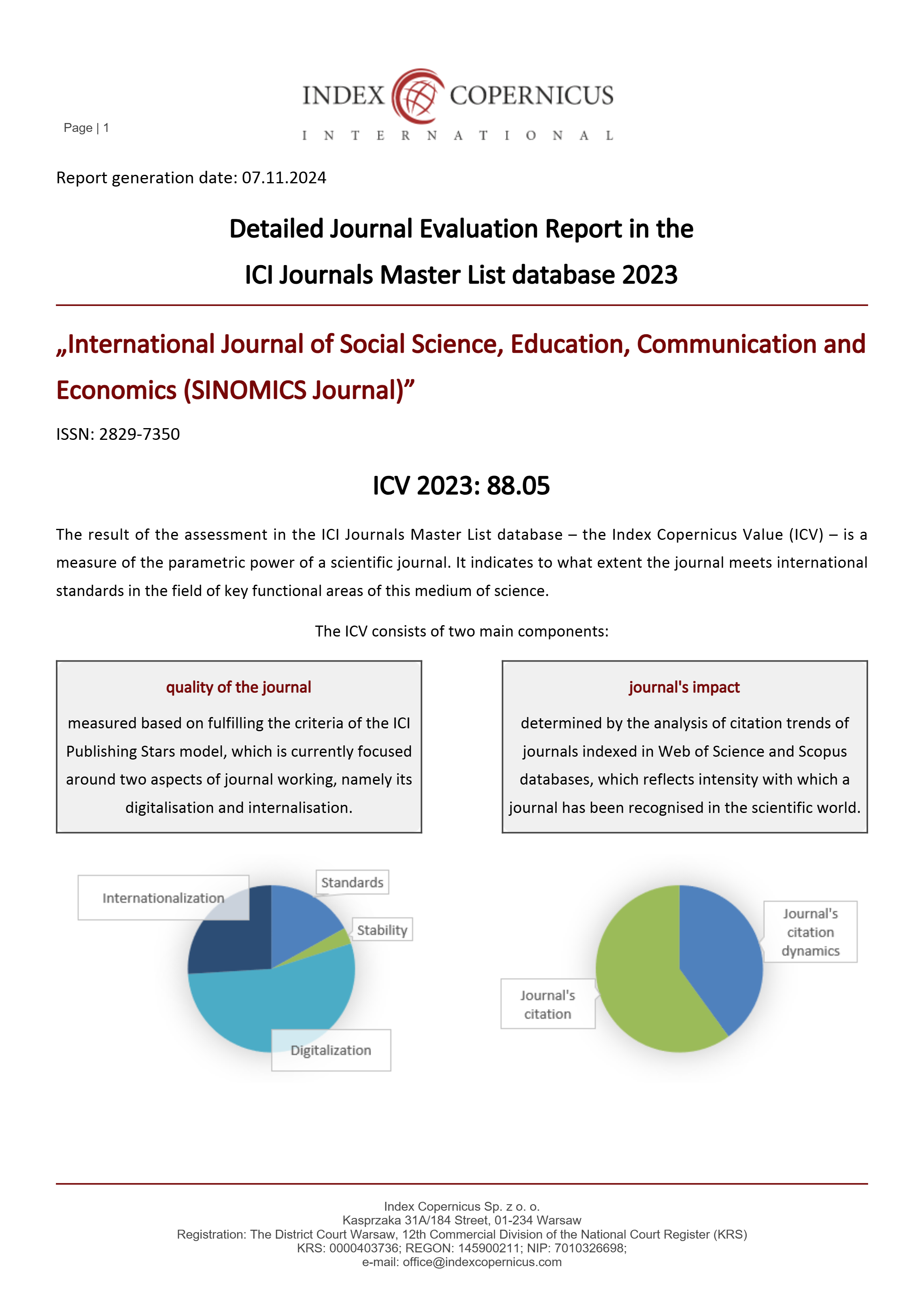The Influence of Job Stress on Turnover Intention in Gen Z
Main Article Content
Rhaeditias Inggartika
Khoiriah
Fahma Aziza Putri
This study aims to determine the effect of work stress on turnover in generation Z at Company X Jakarta. The variables studied in this study are work stress as an independent variable (X) and turnover intention as a dependent variable (Y). In this study, the approach used is quantitative. In research with a quantitative approach, the main objective of the researcher is to measure certain variables accurately. The type of sampling used in this study is accidental sampling, namely in taking research samples, researchers pay attention to certain criteria. This type of sampling is used because it considers practicality and availability of resources. The sample criteria in this study are Generation Z who have worked for at least 1-2 years in a company. The survey containing measuring instruments for the three variables was distributed online via social media. Based on the data obtained, there is a positive influence between the two factors, namely work stress and turnover intention. The higher the work stress, the higher the turnover intention of Generation Z, and vice versa, the lower the work stress, the lower the turnover intention with a value of = 0.791 with a p value = <.001 (p <0.05). This means that the higher the work stress, the higher the turnover intention of Generation Z, and vice versa, the lower the work stress, the lower the turnover intention.
Andini, O. P., Sunuharyo, B. S. & Utami, H. N. (2018). Pengaruh kepuasan kerja terhadap stres kerja dan turnover intention karyawan (Studi pada Karyawan PT Indolakto Factory Pandaan). Jurnal Administrasi Bisnis, 54(1), 1-15
Asepta U. & Pramitasari, D. (2022). Pengaruh Job Stress Dan Burnout Syndrome Terhadap Turnover intention Pada Karyawan Wanita Di Kota Malang. Jurnal Riset Manajemen Sains Indonesia (JRMSI). 13(1), 10-21.
Bhat, M., Shagufta, & Rainayee, R. (2020). Assessment Of Perceived Labor Market Conditions In Employees’ Turnover Intention Model – Mediation And Moderation Analyzes. Emerald, 1(1), 20-28
Chen, X., Ran, L., Zhang, Y. (2019). Moderating role of job satisfaction on turnover intention and burnout among workers in primary care institutions: a cross-sectional study. BMC Public Health, 19, 1526. https://doi.org/10.1186/s12889-019- 7894-7
Dewi, B., & Wibawa, M. (2016). Pengaruh Stres Kerja Pada Turnover intention Yang Dimediasi Kepuasan Kerja Agen Ajb Bumiputera 1912. E-Jurnal Manajemen, 5(6), 1-30.
Fitriani, R., Agusdin, & Nurmayanti, S. (2020). Stres Kerja Terhadap Turnover Intention. Jurnal Distribusi, 8(1), 23–38.
Gunadi, L., Siahaan, A. & Adji, A. (2021). Turnover intention Analysis In Digitalization Era Within Covid-19 Pandemic Situation. Emerging Markets: Business and Management Studies Journal, 9 (1), 19-33.
Helsya, Veone, Poppy. (2019). Analisis Hubungan Profesionalisme dan Stres Kerja terhadap Turnover intention Auditor Internal dengan Kepuasan Kerja Sebagai Variabel Mediasi (Studi Empiris Pada Bank di Sumatera Barat). Tesis. Fakultas Ekonomi. Universitas Andalas
Mobley. (2011). Pergantian Karyawan: Sebab, Akibat dan Pengendaliannya. PT. Pustaka Binaman Pressindo: Jakarta.
Lubis, N., & Onsardi, O. (2021). Pengaruh Kompensasi, Komitmen Organisasi Dan Kepuasan Kerja Terhadap Turnover Intention Pada Pt. Bukit Angkasa Makmur Bengkulu (Studi Kasus Karyawan Produksi PT.BAM Bengkulu). (JEMS) Jurnal Entrepreneur dan Manajemen Sains, 2(2), 196–208. https://doi.org/10.36085/jems.v2i2.1549.
Novrandy, R. A., & Tanuwijaya, J. (2022). Pengaruh Work-Family Conflict Dan Work Engagement Terhadap Task Performance Dan Turnover Intention Dengan Mediasi Supervisor Support. Jurnal Ilmiah Manajemen Bisnis Dan Inovasi Universitas Sam RatulangI (JMBI UNSRAT), 9(1), 414–430.
Robbin, S. P. (2013). Perilaku Organisasi. In Edisi Kesembilan Jilid 2. Jakarta: PT Indeks Kelompok Gramedia.
Sharma, N., Chaundhary, N., & Singh, V. K. (2019). Management techniques for employee engagement in contemporary organizations. In Advances in Human Resources Management and Organizational Development (AHRMOD) (Issue January). IGI Global. https://doi.org/10.4018/978-1-5225-7799-7.ch009.
Valendra, Y., Agung, S., & Firdaus, M. A. (2020). Pengaruh Stres Kerja Dan Lingkungan Kerja Terhadap Kinerja Karyawan. Manager : Jurnal Ilmu manajemen, 2(4), 514. https://doi.org/10.32832/manager.v2i4.3798.










